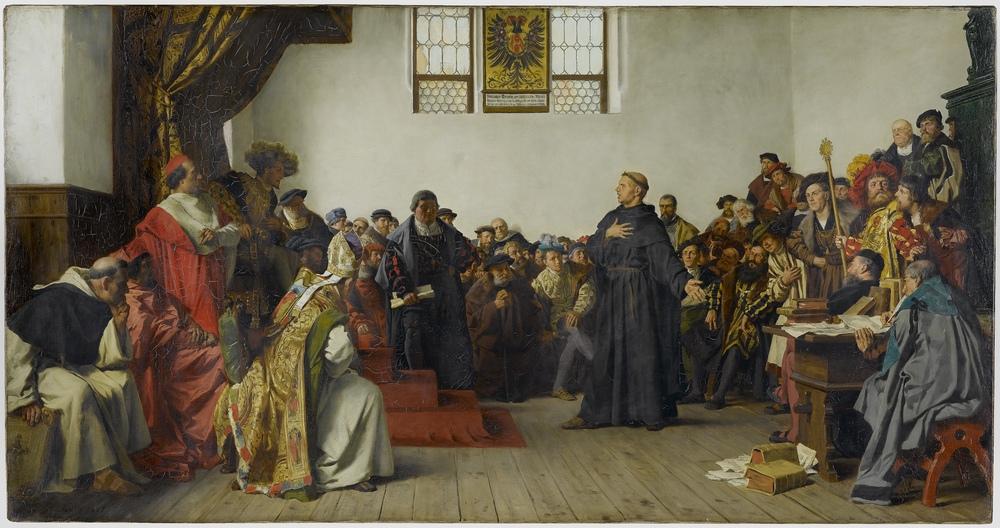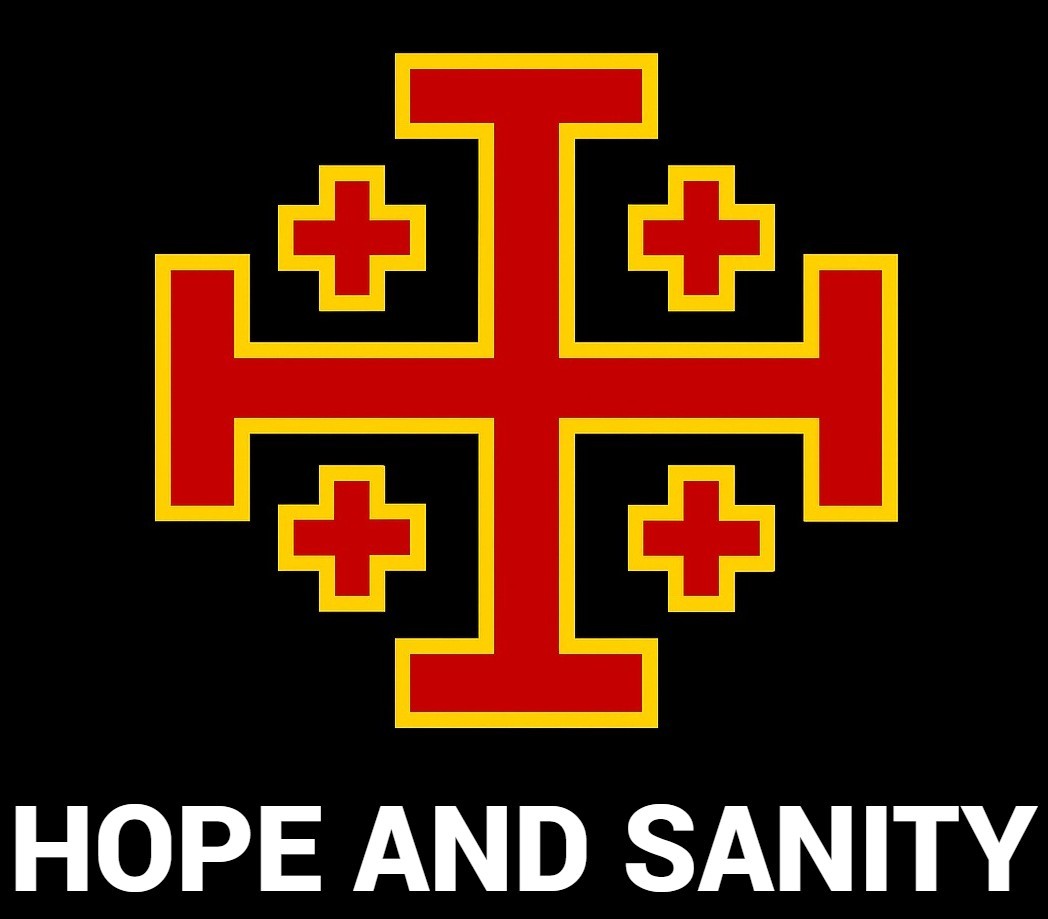
The Basics
Protestantism is a sect of Christianity. They believe that God created the universe and endowed man with a soul, but that man sinned and broke this original harmony. God enacted a plan to rescue man from this chaos. He revealed Himself to Moses and established laws and practices to keep the chosen people on the right path. When the time of fulfillment came, God sent down His Son to preach, to be crucified, to die, to resurrect, and then return to Heaven. He then sent the Holy Spirit to empower His followers to know and love God, and to convert the world.
Those who faithfully follow Christ will be “saved” through the redemptive power of His sacrifice. They will go to Heaven, God’s own dwelling place, to be with Him for eternity. Those who reject Christ will not receive a share in His redemptive power, left instead with the consequences of their own actions – disorder, evil, self-centeredness, and separation from God – Hell.
Protestants “protested” certain aspects of the authority of the Catholic Church. Due to being outside the doctrinal authority of the Catholic bishops, there are thousands upon thousands of Protestant churches, each with their own leaders, traditions, histories, and doctrines.
The History
In 325, Emperor Constantine called together all the bishops of the Christian Churches to settle a debate. There was a good deal of confusion surrounding some Christians who taught that Christ was not God incarnate, but a created being. The bishops did convene, and ruled that this idea, Arianism, was heretical and could not be held by the faithful. Following that first council, many others convened and ruled on matters of doctrine, such as the Trinity, Christ’s deity, Christ’s humanity, the nature of grace, and more.
These rulings were considered binding upon all the faithful until a disagreement erupted between the east and the west (today the Orthodox and Catholics) leading to the Pope and the Ecumenical Patriarch of Constantinople excommunicating each other. Read more about that history here. This disagreement (and others) culminated in the Council of Florence with an outright rejection of the Romans by the Orthodox. To this day, the Roman Catholic Church and the Eastern Orthodox Church remain visibly and theologically separated. The Romans continued holding ecumenical councils, while the Orthodox did not, believing it impossible to bind the faithful without the consent of the Patriarch of Rome (the Pope).
In the early 1500’s, a German Catholic priest named Martin Luther became disenchanted with the worldliness of the Roman Church. Among many issues, his biggest was the selling of indulgences. An “indulgence” is an act which remits the penalty of a venial (lesser) sin. For example, Imagine a man stole $5 from his friend. He could make restitution to his friend by returning the $5, and he could make restitution to God (indulgence) by donating an extra $5, or fasting, or praying. Unfortunately, many in the Catholic hierarchy took the opportunity to codify and accept donations as indulgences, effectively “selling” indulgences to the faithful and creating an “economy of forgiveness” centered on barter and marketing schemes.
Martin Luther was appalled, and went further than to just reject the ugly manifestation of greed in front of him. Instead, he rejected the entire concepts of (1) infallible ecumenical authority and (2) penance for the remittance of sins. Five “solas” codified his new ideas, the first two pertaining to these topics. Sola Scriptura means that “scripture alone” is infallible, not the Pope and the council of bishops (the magisterium). Sola Fide means that “faith alone” is the cause of salvation, without the cooperation of penance, such as indulgences. Between introducing these ideas into public conversation and translating the Bible such that Germans of multiple dialects could all read it (though he was not the first to translate the Bible to vernacular), Luther began the Protestant Reformation.
Reformed Ideas
Luther’s intent was never to start a new Church. He considered himself Catholic, but believed many traditions needed to be done away with. Likewise, the early reformers taught that the Catholic Church was the true Church, but that her traditions had become like a dead skin which the faithful had to crawl out of as it molted. This foremost required a total repudiation of Church authority. Luther “excommunicated” the Pope (I put that in quotations because no Priest has ever excommunicated a Bishop) and the reformers’ Westminster confession declared him the very antichrist. Power hungry princes took advantage of this opportunity to separate themselves from Papal authority, and thus began many wars between the “Protestants” and the Catholics.
A Protestant group arrogates to themselves (or to a pastor of their choice) the authority to define and explicate scripture. This is different from the Catholics and Orthodox, who teach that the Church is the visible hierarchy of Bishops, chosen by the previous visible hierarchy of Bishops, chosen by the previous visible hierarchy of Bishops, all the way back to the Apostles. Today, there are dozens of substantially different Protestant faiths. Using this definition (which essentially describes sola scriptura) Lutherans, Calvinists, Mormons, Jehovah’s Witnesses and so forth are all Protestant. As such, it is impossible to summarize Protestant doctrine, because such a thing fundamentally can’t exist. However, I will make a few points concerning the more “mainstream” views:
(1) The role of the Church. As described above, the Catholics and Orthodox view the Church as the visible body of true shepherds established by Christ, whereas Protestants typically view the church as the invisible body of true believers. They rely on informal means to define doctrine, typically involving community Bible study. This is in stark contrast to the Apostolic traditions, which hold to binding doctrinal declarations. Traditional Protestants held to the majority of Catholic traditions and would say that sola scriptura necessarily involves tradition. In practice, the ability to subjectively reject traditions at will means very few Protestant maintain a resemblance to Catholicism today.
(2) The role of the sacraments. The Catholic Church teaches that Baptism, the Eucharist, and confession are salvific, not symbolic. Traditional Protestants believe Baptism and the Eucharist are salvific, but reject confession entirely. Mainline Protestants generally believe that these are purely symbolic. In each case, Protestants don’t have “priests” (ministers) in the same sense that Catholics or Orthodox do; their pastors are more like counselors, and often accept women.
(3) Faith. While Catholics agree that salvation is purely by God’s saving power, they disagree with sola fide. The fundamental disagreement generally lies in the role of good works. It is as simple as this: Protestants generally view good works as flowing from faith and causing sanctification. Catholics view good works as flowing from grace directly, synergistically strengthening faith, and causing sanctification. Much ink has been spilled by either side totally misunderstanding the other. Catholics do not believe we self-generate works profitable for salvation, and traditional Protestants do not believe works are meaningless. Now, there are Protestants who believe works are essentially meaningless, but that is not sola fide – that’s an adjacent doctrine which many other Protestants would call heretical.
(4) The nature of predestination. On one extreme, some Calvinists teach that God creates certain men “ungraceable” (my word for it) specifically to deprive them of grace, permit them to sin, and consequently damn them. On the other, the universalists teach that God will save all men, regardless of their choices. There are many views in-between these two extremes, many of which generally agree with Catholic and Orthodox views. See here for more information on this topic.
Conclusion
Protestantism is an amalgamation of Christian churches separate from the teaching authority of the Catholic or Orthodox churches. Today, about 12% of the world is Protestant.
My analysis of Protestantism will be focused on sola scriptura (here).
You can follow the hyperlinks above or navigate to the critiques using the menu.
